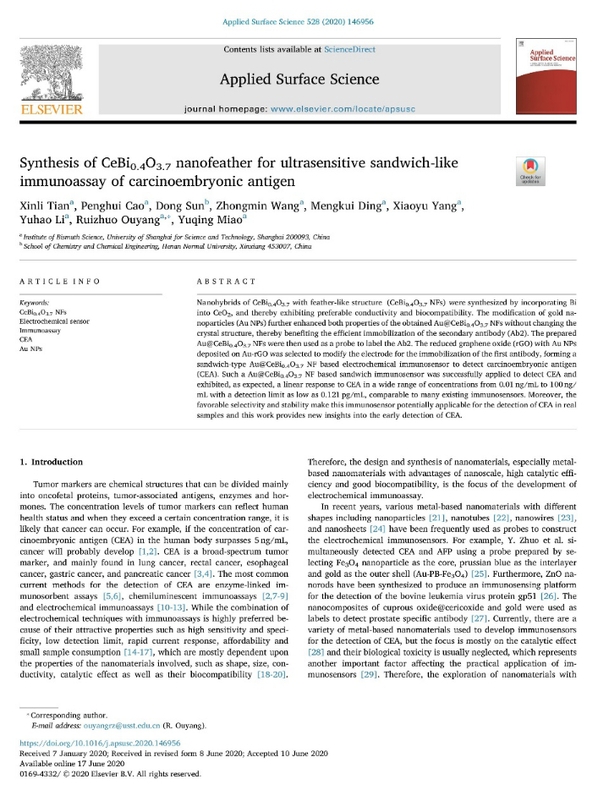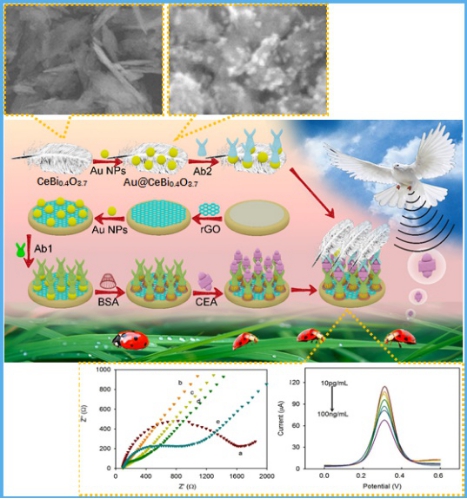Recently, the Institute of Bismuth Science reported an ultrasensitive bismuth-based sandwich-like electrochemical immunosensor for the detection of tumor biomarker carcinoembryonic antigen (CEA) in a high-impact international journal Applied Surface Science (IF=6.18). This paper was mainly completed by Tian Xinli, a 2017 master student in the Department of Chemistry, College of Science, who is supervised by associate professor Ouyang Ruizhuo.

In this paper, nanohybrids of CeBi0.4O3.7 with feather-like structure (CeBi0.4O3.7 NFs) were synthesized by incorporating Bi into CeO2 with enhanced preferable conductivity and biocompatibility. The modification of gold nanoparticles (Au NPs) further enhanced both properties of the obtained Au@CeBi0.4O3.7 NFs without changing the crystal structure, thereby enabling Au@CeBi0.4O3.7 NFs to act as an immunosensing probe to label the second antibody (Ab2). The reduced graphene oxide (rGO) with Au NPs deposited on Au-rGO was selected to modify the electrode so as to immobilize the first antibody (Ab1), forming a sandwich-type Au@CeBi0.4O3.7 NF based electrochemical immunosensor to detect CEA, a broad-spectrum tumor marker, and mainly found in lung cancer, rectal cancer, esophageal cancer, gastric cancer, and pancreatic cancer. Such a Au@CeBi0.4O3.7NF based sandwich-like immunosensor exhibited, as expected, a linear response to CEA in a wide range of concentrations from 0.01 ng/mL to 100 ng/mL with a detection limit as low as 0.121 pg/mL, comparable to many existing immunosensors, showing potentially applicable for early CEA detection in real cancer samples.

In September 2017, Tian Xinli became a member of associate professor Ouyang Ruizhuo’s research group and began her graduate project-Novel Bismuth Nanocomposites for the Electrochemical Detection of Tumor Biomarkers. She is the first student to work on such a challenging project in this group, and finally made breakthrough through her constant efforts. After a three-year academic training, her comprehensive abilities were significantly improved and she found a good job in the field of analytical chemistry after graduation this June.
We greatly appreciated the financial support from the Natural Science Foundation of Shanghai (19ZR1434800, 19ZR1461900) and the Institute of Bismuth Science of USST led by Professor Yuqing Miao.
Article website: https://www.sciencedirect.com/science/article/pii/S016943322031713X

